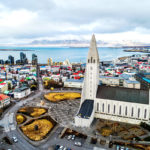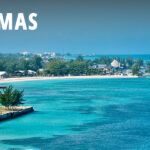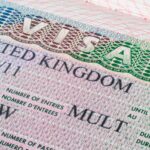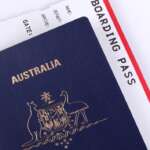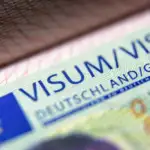Twenty-six countries make up the Schengen area, including France, Germany, and Italy, among others that are top travel destinations. Nigerians traveling to any of these nations must have a Schengen visa.
Part of the requirements Nigerian citizens must meet when applying for a short-term or long-term stay Schengen visa is to pay the visa processing fees, follow the application instructions, and submit documents on time. But how much is Schengen Visa in Nigerian naira?
The cost of the Schengen visa for Nigerian citizens is €80 (NGN36,491), but applicants between the ages of six and twelve will pay half the price, which is €40 (NGN18,425). According to the Schengen Visa regulation, applicants under six years old are not required to pay visa fees.
Note that the Schengen visa fees in Nigeria are paid in the local currency and should be paid when you submit the visa application at the consulate of the EU/Schengen country in Nigeria.
It is necessary to note that the category you fall under for the application and the type of Schengen visa you’re applying for will ultimately determine the cost of the visa fees. So here is a table explicitly explaining Schengen visa fees in Nigeria and the respective visa category that attracts such fees.
Types of Schengen Visa and Fees in Nigeria
| Visa Category | Visa Price in Nigerian Naira | Visa Price in EUR |
| Nigerian Adults | NGN36,491 | 80 EUR |
| Children between 6 and 12 years of age | NGN18,425 | 40 EUR |
| Children below six years of age | No Visa fees | No Visa fees |
Please note that the visa fee in Nigeria naira is based on the current exchange rate at the time of writing and is subject to change without notice. We advise seeking the current exchange rate for an apt figure.
The countries that fall under the Schengen area are the Netherlands, Norway, Poland, Portugal, Austria, Belgium, Czech Republic, Italy, Latvia, Slovenia, Spain, Sweden, Liechtenstein, Lithuania, Luxembourg, Malta, Denmark, Estonia, Finland, France, Germany, Greece, Hungary, Iceland, Slovakia, and Switzerland.
Hence, Nigerian passport holders seeking to travel to these European countries must pay the above fees when applying for a short-term visa.
What Category of Nigerian Applicants Are Exempted From Paying Schengen Visa Fee?
The only category of Nigerian applicants that need not worry about paying visa fees when applying to travel to the countries mentioned above from Nigeria is children under the age of six.
However, Nigerians who hold diplomatic, official, or service passports traveling to Europe for official reasons are also not required to pay these Schengen visa fees, irrespective of their category.
In addition, Nigerian applicants that are family members of an EU/EEA national or researchers traveling to perform scientific research are also exempted from this fee.
The Schengen visa regulation also enforces that Nigerian graduate and postgraduate students traveling to Europe for educational training and study purposes do not pay visa fees.
Are There Extra Charges to Schengen Visa Fees in Nigeria?
In the real sense, there ought not to be any hidden or additional fees to the already stipulated visa fee for Nigerians applying to travel into any of the Schengen countries. But you may need to settle more than the standard fee for a Schengen visa application if you use a private visa agency, e.g., TLS, VFS Global, etc.
Most Consulate offices in Nigeria accept visa applications made through an appointed agency. Knowing this, extra charges to Schengen visa fees may be unavoidable since you need to go through them for the application.
These visa processing agencies are responsible for scheduling visa appointments, submitting necessary documents at the Schengen embassy or consulate, and performing other essential processes on your behalf.
You can expect these services to come at a cost, meaning more money will go into each application beyond the standard visa fees.
Are Schengen Visa Fees in Nigeria Refundable?
No, you cannot get a refund for Schengen visa fees that have already been paid during the application process. Whether your visa gets approved or denied, the visa fees and other charges incurred via agencies during the visa application process remain non-refundable.
How To Apply For A Schengen Visa From Nigeria
Many Nigerians get lost in the details when applying for a Schengen visa, especially during this period. The first step is knowing when it’s ideal to start your application process.
We advise that you apply for a Schengen visa from Nigeria at least three weeks before your flight. At the same time, you don’t want it to be too early. We don’t recommend applying over six months before your trip to avoid rejection.
Application for a Schengen visa from Nigeria takes the following steps:
Step 1: Choose the type of Schengen visa
Nigeria passport holders can choose among the various ‘types of Schengen visa, which is determined by the purpose of their travel. There is the Medical Schengen visa for Nigerians traveling to receive medical treatment; there is the Business, Tourism, Visiting Family and Friends, and Cultural Schengen Visa.
A globally recognized knowledge base of all the information about Schengen visa application, SchengenVisas.com, shares detailed information about the types of Schengen visa and their validity.
Step 2: Know what Schengen country to apply to
You need to identify the particular Schengen country where you intend to spend the most time on your trip. Nigerian passport holders may plan to travel to Germany and Spain – both of which are among the Schengen areas – but applying for the Schengen visa is recommended for where you’d be spending most of the time.
Step 3: Schedule your Schengen visa appointment
Attending a Schengen visa appointment is inevitable when applying for a Schengen visa from Nigeria. The meeting is usually scheduled online and in advance.
However, recently, the appointment window for short-term visitation visa stay has been irresponsive following the surge of the global pandemic. However, Nigerians ardent on traveling find their way to the consulate office to book an appointment in person.
In Nigeria, an application for a Schengen visa is made through the embassy connected to the particular Schengen country you are applying through. This embassy has offices in Abuja and Lagos.
You can contact us for detailed guidance on where (and how) to submit your application, either in Lagos or Abuja.
Step 4: Gather the right required documents
When submitting your visa application, you must accompany the filled form with certain documents such as your Nigerian passport (or other valid passports), two Passport photos that meet the passport requirements, and proof of accommodation during your stay in the Schengen area.
Other general requirements include proof of finances to fund your trip, a correctly filled Visa application form (this can be downloaded and filled out online), and the Schengen visa fee depending on your category.
Step 5: Attend your Schengen visa appointment
After gathering the requirements and booking an appointment, you will be scheduled for a date to visit the consulate office in either Lagos or Abuja, depending on the Schengen country you’re traveling to.
And then a short interview will be carried out, after which you will have to wait for the decision that will be meted on your application.
Are There COVID-19 Requirements/Restrictions For Travelling to Schengen Area From Nigeria?
The different member state of the Schengen area has their respective restrictions and requirements for Nigerians entering the country as per the COVID-19 measures.
Generally speaking, you are expected to have proof of complete Vaccination before you travel since many Schengen countries will deny entry to anyone who is not vaccinated.
Ultimately you want to know the entry requirements of the country you plan to visit before doing anything.
Comirnaty by Pfizer-BioNTech, Spikevax by Pfizer-BioNTech, Vaxzevria by Pfizer-BioNTech, and Janssen by Johnson & Johnson are the recommended Vaccination by the World Health Organization.
Final thoughts
Payment of visa fees is one of the most critical steps to take during the visa application process for traveling to any Schengen country from Nigeria.
However, you must consider the category and the type of visa application you want to be issued. This will be determined by the purpose of your travel to any of these EU countries. Most Nigerians, particularly this season, are moving to the Schengen area for tourism.
You can expect prices of travel-related expenses to be lower than in the summer. But it does not influence the cost of the visa fee.
It is essential to visit the official website of the particular Schengen country to know about specific appointment requirements and current restrictions that may slightly contradict with ones shared here due to timeliness and subject to change,
